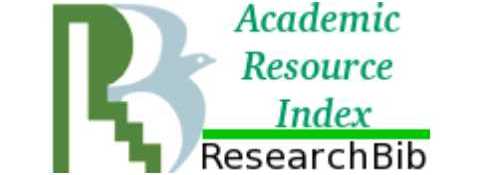Overview of changes in the taxation of agricultural producers In Russia
Agriculture is one of the most important priority sectors of the national economy, which provides the country's food security. But there are many problems in the activ- ities of agricultural producers, connected to the general taxation regime and the large tax burden.
The purpose of this article is to study the current Unified Agricultural Tax (UAT), identify the positive and negative aspects of the application of these special tax re- gimes, as well as identify the main instruments of state support for agricultural producers.
The problems that were solved during the writing these work were to substantiate the feasibility of Unified Agricultural Tax introduction for agricultural producers, adapt- ing it to the real conditions of agricultural business, analyzing the terms that must be met during Unified Agricultural Tax application, as well as studying the variation in the rates of a single tax to identify balance between the burden on payers and the amount of tax revenues to the budget.
The research is based on general scientific methods of empirical research, analysis and synthesis, analogy, systematization, as well as methods of structural and logical analysis.
The authors described the field of key changes in the system of the unified agricul- tural tax, based on amendments to the Tax Code, and emphasize the taxation of agri- cultural producers’ property. The authors described in details subsidies and conces- sional lending to the agricultural sector of the economy, studying government sup- port for agricultural producers.
Conclusions. The methods of government regulation of agriculture in Russia are quite diverse and each of them has its own advantages and disadvantages. There is no universal method because of the uniqueness and individuality of agricultural produc- ers. They depend on the place of production, its primary and subsequent processing. Consequently, the changes introduced to the Tax Code of the Russian Federation in the field of taxation of agricultural producers can affect both positively and negative- ly. Undoubtedly, the effect of these innovations will still be there, and it can be traced in future indicators of tax revenues of the Russian Federation budget.

















While nobody left any comments to this publication.
You can be first.
1.Current problems of taxation of agricul-tural businesses, 2019. Natural and humanitarian research No. 26 (4), 2019:27-32
.2.Antonova N., 2020. The Ministry of Agri-culture has updated the rules for granting a unified subsidy from 2020 // Regulation.gov.ru access mode: https://aftershock.news/?q=node/835259&fullThe draft government decree is published on the Regu-lation.gov.ru portal. (Accessed 5 May2020).
3.Bryzgalin A. V. Golovkin A. N., 2010. Complex operations and transactions taxation and accounting (part one). –Tax and Financial Law, 2010. https://base.garant.ru/55059771/(Accessed 5 May 2020).
4.Declaration of the UCHN for 2019:in-structions for filling out in 2019. Example –How to build your business [Electronic resource] Access mode:https://kmb-chr.ru/sposoby-zarabotka/deklaratsiya-eshn-za-2019-god-in-struktsiya-po-zapolneniyu-v-2019-primer.html(Ac-cessed 5 May2020).
5.Federal Law of November 27, 2017 No. 335-FZ "On Amendments to Parts One and Two of the Tax Code of the Russian Federation and Certain Legislative Acts of the Russian Federation [Elec-tronic resource]: Access mode:"http://www.consultant. ru / document / cons_doc_LAW_283495 /
6.Unified agricultural tax in 2020: changes, rate.[Electronicresource]:Accessmode:https://www.rnk.ru/article/217060-eshn-v-2020-godu-izmeneniya/(Accessed 5 May2020).
7.Vaganova O.V., 2020. Transformation of Agriculture Through Digitalization, Innovative So-lutions, and Information Technologies / O.V. Vaganova, N.E. Solovjeva, Y.L. Aulov, L.I. Pro-kopova // Advances in Economics, Business and Management Research, volume 137. Proceedings of the III International Scientific and Practical Confer-ence "Digital Economy and Finances" (ISPC-DEF 202024 April 2020) ISSN 2352-5428, ISBN 978-94-6252-957-1.DOI https://doi.org/10.2991/aebmr.k.200423.015.P. 65-68.
8.Voznyuk, EA Taxation as an instrument of state regulation of the agro-industrial complex / EA Voznyuk. –Text: direct, electronic // Young scientist. –2016. –No. 30 (134). –S. 161-163. –URL: https://moluch.ru/archive/134/37223/ (Ac-cessed 5 May2020).
9.Tax Code of the Russian Federation 2020 [Electronic resource]: Access mode: https://vladrieltor.ru/nalkodeks
10.The main directions of budgetary, tax and customs tariff policy for 2020 and for the planning period of 2021 and 2022. [Electronic resource]: Ac-cess mode: https: //www.minfin.ru/ru/document/?Id_4=128344-osnov-nye_napravleniya_byudzhetnoi_nalogovoi_i_tamoz henno-tarifnoi_politiki_na_2020_god_i_na_20_planovyi_ periodov
11.The Draft government decree was pub-lished on the portal Regulation.gov.ru. /(Accessed 5 May 2020)
12.Subsidizing the agro-industrial complex in 2020 [Electronic resource]: Access mode:https://m-ty.ru/gos-podderzhka-apk-2020-g//(Accessed5May 2020).
13.Zharova E.N. Current problems of taxa-tion of agricultural commodity producers // Modern managementtechnologies.ISSN2226-9339.–No.12 (24). Article number: 2405. Publication date: 2012-12-08.Accessmode: https://sovman.ru/article/2405/ (Accessed 20 April 2020).
14.Zhuravleva T.A. Unified agricultural tax and the reasons for its lack of demand by agricul-tural producers in Russia // Economy:yesterday, today, tomorrow. 2016 No. 3:111-121.